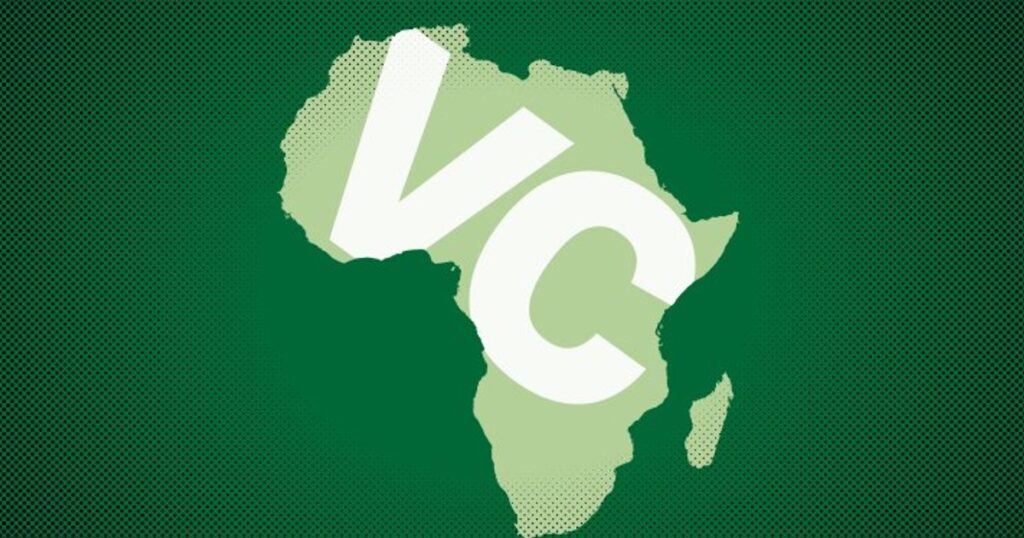Anica F., Director and Angel Investor at York University (Canada) Ali Moktal, CEO of Belton Venture Capital (Egypt) Thomas Bigari, Partners of Plug and Play (France) Emea, Malemdien, 500 Global (USA) Dario Giuliani, Britterbridge (UK)
Each of them brought their own perspective to important questions. Who supports early stage African startups? And how do we ensure that the next unicorn on the continent will emerge despite a challenging financing environment?
Why early stages of Africa's funding is running out
The conversation began with a reality check. According to Mareme Dieng, there is no shortage of funding in Africa, at least in series A and B stages. The real problem lies early in the startup lifecycle.
“Investors are under a lot of risk pressure,” she said. “But no early stage trading flows. There is real concern about the market capabilities and the ability to build a strong pipeline.”
The entire discussion agreed: Venture capital is inherently dangerous, but African ecosystems face unique structural constraints. If stakeholders want different outcomes, they need a different approach.
“VCs are risk-driven assets,” Mareme emphasized. “If you want to see the change, you need to change your approach.”
From the “Dark Continent” to the Spotlight
When asked how investors should respond to the ongoing funding drought, Dario Giuliani offered a broader perspective. “Africa was once considered a 'dark continent' for investment, but now it's falling into the spotlight,” he said.
Over the past decade, Africa has seen its capital inflows surge from millions to billions of dollars each year. Countries such as South Africa, Nigeria, Egypt and Kenya (the “Big Four”) led the way. Now, Dario said he is slowly paying attention to the ecosystems surrounding these centers.
One notable trend is the rise of specialized capital providers. It is funded dedicated to black founders, women-led startups, and other underrepresented groups. “The story is changing,” he said. “We have more early stages of capital today than ever before, but we need to make sure we get to the right place.”
A sparse investment map
While capital has increased significantly in some major markets, other parts of the continent remained neglected. Thomas Bigari spoke openly about this, saying, “Some countries are constantly attracting investment, while others are left behind.”
He called for targeted measures to fill this gap. “We need to identify and support founders in underfunded areas. We already support many entrepreneurs, but we need more stakeholders, including government, businesses, and communities.”
Thomas believes that the future of Africa's innovation is clear. “Africa is already the future,” he said. “But we all have to do our part.”
Advice to Founders: Start with real
For founders looking to raise capital in the early stages, the panel had a clear message. Building matter before stepping into the spotlight.
“We'll focus on building a sustainable company,” Ali Mokhtar said. “If your foundation is strong, the funds will come.”
Dario Giuliani urged founders to understand their true fundraising needs. “Be clear about what you're making,” he said. “Not everyone needs to raise money to grow. Ask yourself, can you slowly shrink it down sustainably, or do you need external funds?”
The panel agreed that this shift in founder expectations is key to building resilient companies that can transcend trends.
Investor Advice: Rethinking the Playbook
Investor Tips: Rethink your strategy
Investors were also encouraged to adapt. “We cannot simply apply the US trading structure to Africa,” said Thomas Bigari. “We need a strategy tailored to the local market.”
From flexible fundraising models to customized risk assessments, the panel encouraged investors to be innovative not only in their fundraising but also in their methods.
Mareme Dieng said, “Investors should do due diligence. There are opportunities across the continent, but discipline is important.”
The road ahead
Despite the current challenges, the tone of the panel was optimistic and even provocative. The African unicorn pipeline may be under pressure, but it is far from drying out.
consensus? The continent has talent, ideas and markets. What we need now is smarter capital, broader participation, and a shift from imitation strategies to Africa-centric innovation models.
As Dario said, “Africa was not once served. Today, it's on the radar. The opportunities are enormous and we're just starting out.”


